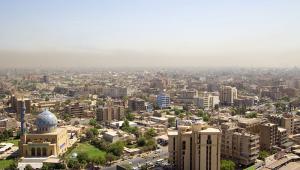By Nick Mann | 28 January 2013
Algeria must rein in government spending and reduce its reliance on oil for revenues, according to the International Monetary Fund.
In a statement issued on Friday at the end of its annual review of the North African country’s economy, the fund said increased public spending meant Algeria’s finances had an ‘increased vulnerability’ to oil prices.
Algeria’s deficit increased from 1.3% of gross domestic product in 2011 to a projected 3.6% last year as the effects of civil service wage increases kicked in.
A budget law taking effect this year will phase out wage back payments and also enable fiscal consolidation, reducing the deficit to 1.3% of GDP by 2013.
But the IMF said that when oil revenues were excluded, the deficit would be 40% of GDP this year. It stressed that ‘further fiscal consolidation’ was essential for ensuring fiscal sustainability.
‘In this context, policy efforts should gear towards containing current spending – especially the wage bill, better targeting of subsidies, reviewing tax exemptions, and bolstering non-hydrocarbon tax revenues,’ it said.
The IMF also urged the Algerian authorities to ‘enhance’ public financial management and to implement a ‘full-fledged’ medium-term budget framework.
Overall, the IMF expects Algeria’s economic performance last year to have been ‘solid’, with growth projected at 2.5%. Domestic demand and a recovery in the oil sector are expected to help boost this to 3.4% this year.
The fund warned, however, that as with the country’s public finances, its economy as a whole was vulnerable to a prolonged fall in oil prices. It could also suffer from rising wheat prices on the international markets and a worsening of the global economy, and the eurozone in particular.
‘Rising inflation, continued heavy reliance on the hydrocarbon sector and public spending, and vulnerability to a prolonged decline in the oil price, as well as high unemployment, pose significant challenges,’ the IMF said.
It ‘was urged to take measures to preserve macroeconomic stability, ensure long-term fiscal sustainability, and promote strong non-hydrocarbon growth’.












